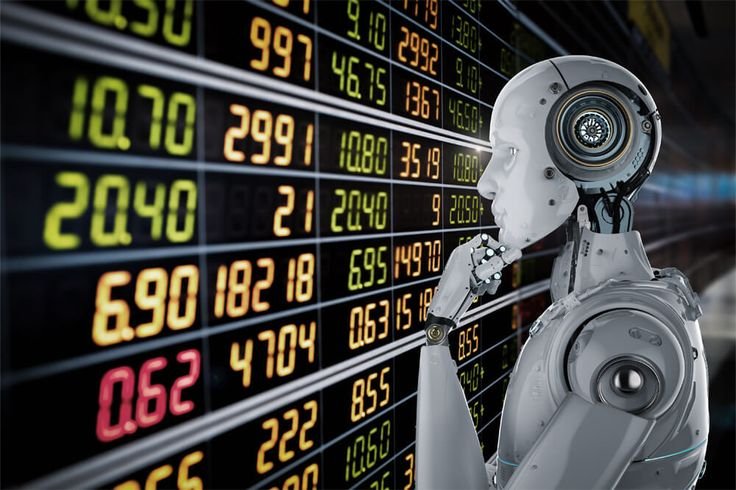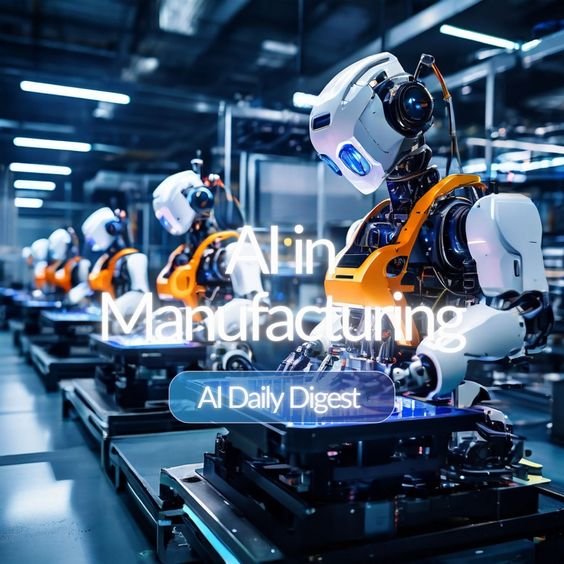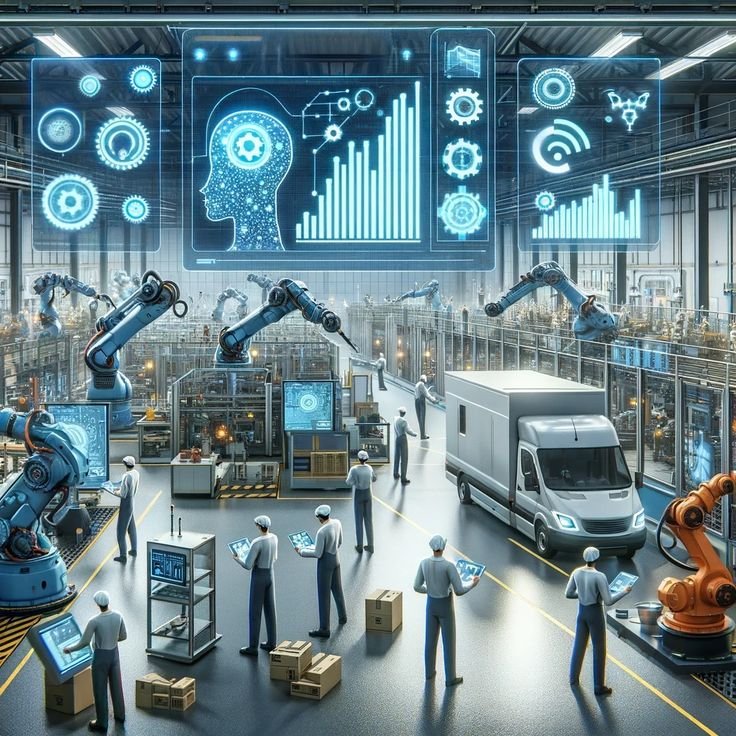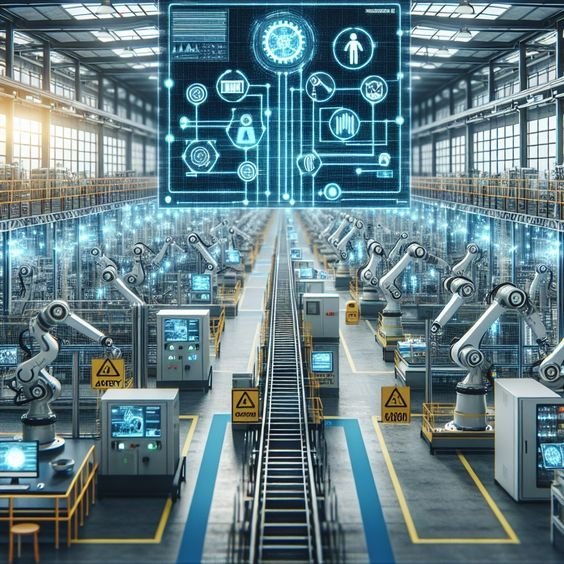Introduction
Artificial Intelligence (AI) has rapidly evolved from a futuristic concept to a transformative force reshaping our world. With advancements in machine learning, natural language processing, and robotics, AI technologies are now embedded in various aspects of daily life. Industries such as healthcare, finance, and manufacturing are experiencing unprecedented changes as AI enhances efficiency, accuracy, and decision-making.
In this post, we’ll explore how AI is revolutionizing these key sectors, highlighting groundbreaking advancements like AI-powered diagnostics in healthcare, algorithmic trading in finance, and smart manufacturing techniques. We will also examine real-world applications from leading companies that are harnessing the power of AI to drive innovation and improve outcomes. Join us as we delve into the remarkable ways AI is paving the path for a smarter and more efficient future.
1. AI in Healthcare

Key advancements:
AI technologies are significantly improving diagnostics and treatment options in healthcare. Innovations like AI-powered diagnostics allow for rapid and accurate analysis of medical images, while predictive analytics can forecast patient outcomes based on historical data. Personalized medicine is becoming a reality as AI analyzes genetic information to tailor treatments for individual patients.
Impact:

AI is speeding up disease detection and enhancing the accuracy of diagnoses. For instance, AI algorithms can analyze mammograms for early signs of breast cancer or predict heart disease risks by examining electronic health records. These advancements not only save time but also improve patient outcomes by enabling timely interventions.
Real-world example:

Companies like Google Health are at the forefront of this revolution, using deep learning algorithms to detect diseases more accurately than traditional methods. Startups like Zebra Medical Vision are also making strides by providing AI solutions for radiology, helping healthcare professionals make informed decisions quickly.
2. AI in Finance

Key advancements:
In the finance sector, AI is driving advancements in financial modeling, fraud detection, and algorithmic trading. These technologies help institutions manage risk, enhance customer experience, and streamline operations.
Impact:
AI is optimizing investment strategies by analyzing vast amounts of data to identify market trends. Additionally, AI-driven systems are improving fraud detection by monitoring transactions in real time, flagging suspicious activities much faster than human analysts. Customer service is also being transformed through chatbots and robo-advisors, providing personalized financial advice at scale.
Real-world example:

Major financial institutions like JPMorgan are utilizing AI to enhance their trading strategies and improve compliance monitoring. Meanwhile, fintech startups are leveraging AI to offer innovative solutions that cater to the evolving needs of consumers, ensuring a competitive edge in the market.
3. AI in Manufacturing and Automation

Key advancements:
The manufacturing sector is witnessing a shift towards smart factories where AI plays a central role. Key advancements include automated quality control systems and predictive maintenance technologies that help manufacturers optimize operations.
Impact:
AI is reducing downtime and improving efficiency by predicting equipment failures before they occur. This proactive approach minimizes costs and ensures seamless production processes. Moreover, AI-driven analytics provide valuable insights that help companies fine-tune their operations and supply chains.
Real-world example:


Tesla’s manufacturing processes are a prime example of AI in action, where advanced robotics and AI algorithms streamline production lines. Amazon also utilizes AI and robotics in its warehouses to enhance logistics and improve order fulfillment speed.
4. AI in Other Industries (Quick Overview)
- Retail: AI powers personalization and recommendation engines, enabling retailers to tailor shopping experiences to individual customers.
- Education: AI-driven learning platforms analyze student performance data to deliver customized educational experiences and improve outcomes.
- Agriculture: Precision farming techniques use AI to analyze soil conditions and weather patterns, optimizing crop yields and resource use.
5. Challenges and Ethical Considerations
Despite the numerous benefits of AI, there are significant challenges and ethical considerations to address. Concerns about job displacement due to automation, privacy issues regarding data collection, and the risk of algorithmic bias raise important questions about the responsible development and deployment of AI technologies. It is crucial to advocate for regulations that ensure ethical AI practices and safeguard against unintended consequences.
6. Conclusion
AI holds immense potential to reshape industries and improve lives, but its journey is just beginning. As we continue to innovate, it is essential to navigate the challenges and ethical considerations that arise. What does the future hold for AI, and how will it further transform our world? We encourage readers to share their thoughts and predictions about the future of AI in the comments below.



I’ve recently started a website, the information you offer on this website has helped me tremendously. Thanks for all of your time & work.
you welcome and hope good fortune for your new website